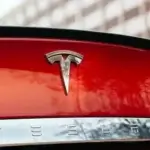China’s passenger vehicle sales rose 4.3% in September, breaking a five-month streak of declines, driven by government subsidies aimed at boosting trade-ins as part of a larger economic stimulus package. The growth was powered entirely by sales of electric vehicles (EVs) and plug-in hybrids, which benefited from a doubling of consumer subsidies, while sales of gasoline-powered vehicles continued to shrink in the world’s largest auto market.
According to data from the China Passenger Car Association (CPCA), September sales hit 2.13 million vehicles, compared to 2.04 million in the same period last year. Sales for the first nine months of 2024 were up 1.9% year-over-year. Notably, 52.8% of all vehicles sold were battery-powered, with sales of new energy vehicles (NEVs) — which includes EVs and plug-in hybrids — surging by 50.9% in September.
While gasoline car sales in September exceeded 1 million, this figure remained significantly lower than last year’s 1.29 million, underscoring the shrinking demand for traditional combustion-engine vehicles in a market that foreign brands once dominated.
The surge in NEV sales is a direct result of China’s expanded subsidies, introduced in July, which offer over $2,800 to consumers who trade in older cars for EVs. For more fuel-efficient combustion vehicles, the subsidy is slightly lower at $2,100. So far, 1.1 million consumers have registered to take advantage of these subsidies.
Tesla saw a banner month in China, selling over 72,000 vehicles, an impressive 66% year-on-year increase. Chinese EV makers BYD and Xpeng also recorded their best-ever sales in September, positioning themselves among the country’s top-selling NEV manufacturers alongside Geely.
Despite these positive figures, commercial vehicle sales — including exports — saw a 23.5% drop, worsening from August’s 12.2% decline, as reported by the China Association of Automobile Manufacturers (CAAM). Overall, China’s vehicle sales fell 1.7% year-over-year when factoring in commercial vehicle performance.
Looking ahead, analysts expect the final quarter of 2024 to remain strong, fueled by ongoing trade-in subsidies and further economic stimulus measures. The Chinese government plans to issue 1 trillion yuan ($140 billion) in special sovereign debt, part of which will support consumer goods trade-ins and business equipment upgrades.
China’s car exports also grew 22% in September, with total sales for the first nine months reaching 3.55 million vehicles. However, tensions are rising in international markets. The European Union has voted to impose tariffs of up to 45% on Chinese-made EVs, citing concerns over unfair subsidies, while Canada and the United States have already implemented 100% tariffs, effectively locking Chinese EVs out of their markets.
As China overtakes Japan as the world’s largest vehicle exporter, the government faces growing pressure to navigate trade tensions while continuing to support its domestic automotive sector, particularly the thriving NEV industry.





